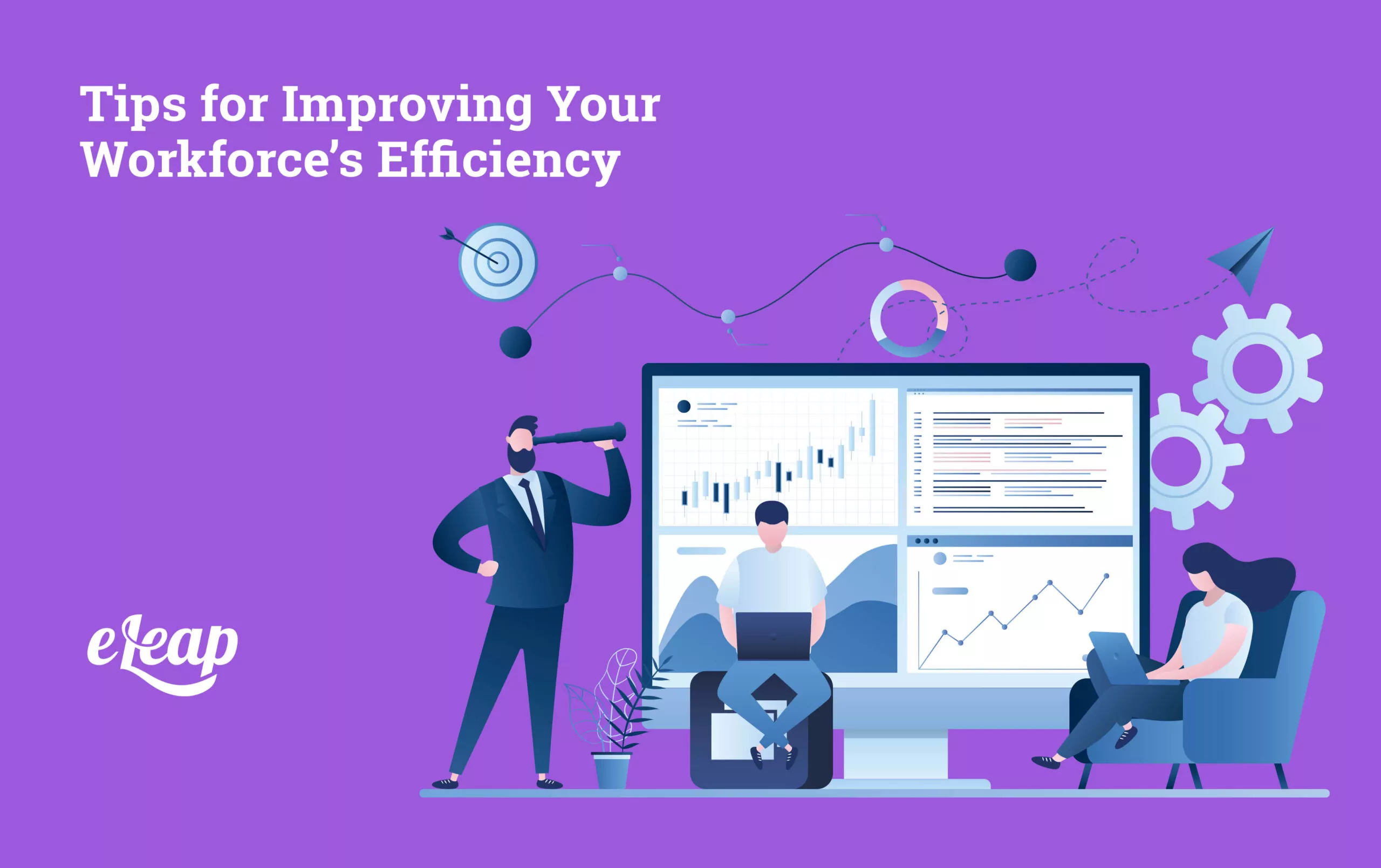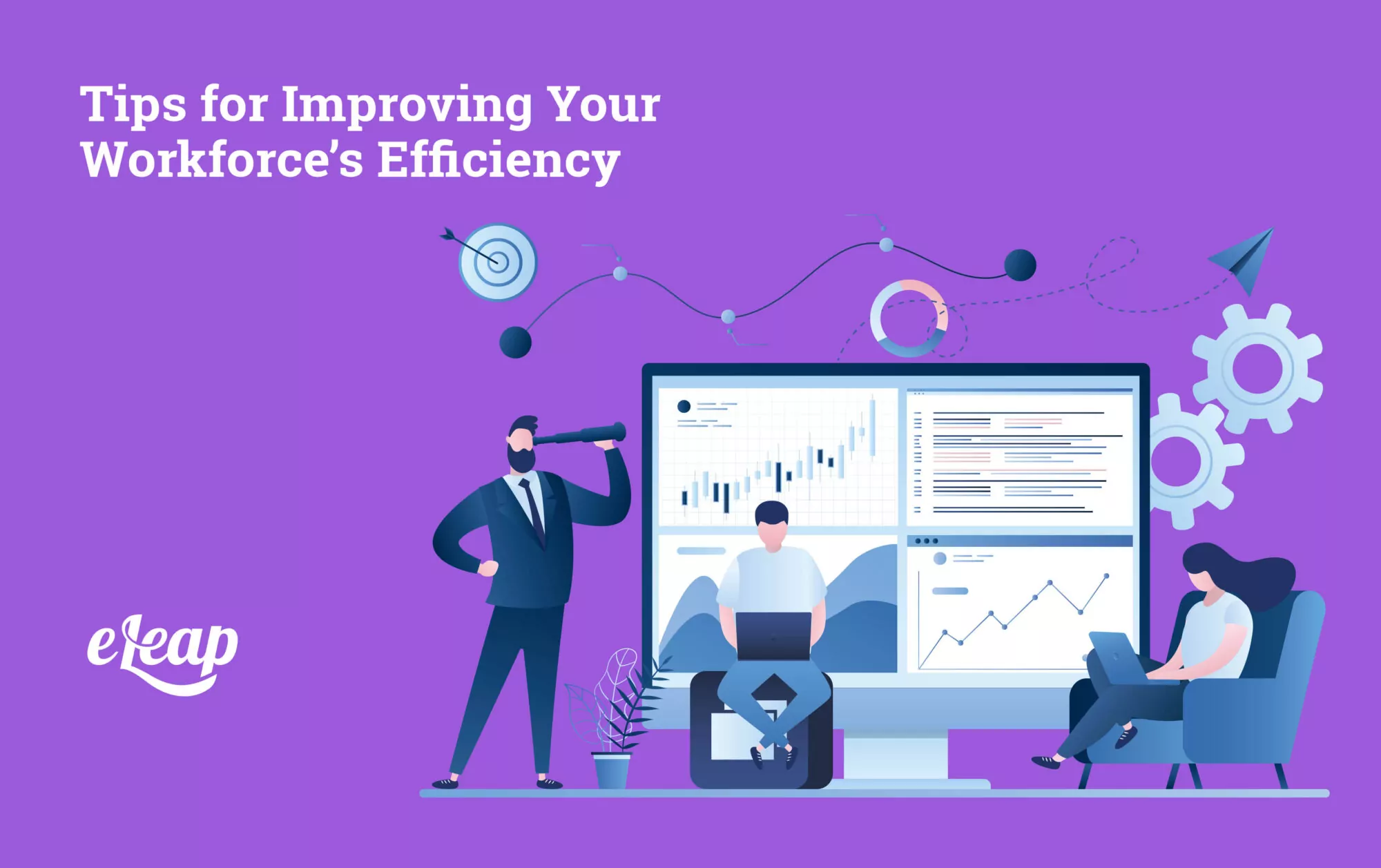Tips for Improving Your Workforce’s Efficiency

Efficiency is more important now than it ever has been before. Without an efficient workforce, your company will likely struggle to survive. An efficient workforce is critical to the smooth operation of a company. If your employees aren’t working efficiently, your organization can crumble. Efficient employees not only do their jobs well, but they also do them well in a timely manner. Ultimately, these can save you a lot of money in the long run. But efficiency isn’t something that your workforce will naturally have. Yes, some employees might be more efficient than others naturally, but you can’t just sit back and hope that efficiency prevails. You need to teach and encourage efficiency in your workforce. Here, we will go over some top tips on how to do just that.

Always Delegate
The first tip is possibly the most obvious one, but that doesn’t make it any less critical. It can be all too easy to get caught up in wanting a direct hand in everything that’s happening in your company. But that isn’t efficient. Delegation can save everyone time. After all, it simply isn’t efficient for you to have your hand in absolutely every minute detail of what’s going on. Choose your most responsible and qualified employees and delegate appropriate tasks to them.
Communicate Consistently
Communication is one of the foundational building blocks of a strong and successful workforce. With the technology that we have at our fingertips these days, there’s no excuse for poor communication. Without effective communication, efficiency will decline. Ensuring your entire workforce is always in the know and understands what’s happening will cut down on small mistakes or time-wasting tasks that were caused by a lack of communication. If you have a remote team, there’s still no excuse for communication to be less than satisfactory. With all the software solutions available these days for your employees, communication is easier now than ever before.
Ensure Your Workforce Has Clear and Focused Goals
If your workforce doesn’t have something to work towards, how will they remain efficient? Employees who don’t have clear-cut goals to work towards won’t be as productive, which is a killer for efficiency. Make sure that your workforce knows the goals and tasks they need to work on at all times. Keep assignments and expectations crystal clear and make sure that your workforce understands what’s expected of them.
Take Advantage of Incentives
Incentivizing your employees shouldn’t be the be-all and end-all of your plan to improve efficiency, but it certainly can help. Encouraging your employees and recognizing them when they work efficiently and complete a task will inspire them to be as productive as possible. Whenever your reward employees, make sure that you consider the best ways to reward them individually. For example, some employees enjoy public recognition for their efforts, while other feel embarrassed by the unwanted attention and would prefer direct private recognition.
Focus on Bigger Tasks
If your employees have a larger goal to work towards, try not to overwhelm them with too many smaller side tasks. The more they have on their plate to do at once, the less efficient they will be able to be at working towards their larger goal.
Focus on Training
Training is the heart and foundation of everything your employees do. If training is poor, your employees simply won’t have the tools and knowledge they need to be efficient Employees have to be trained in order for their efficiency to be up to par. You can’t expect anyone to work efficiently if they don’t know how to complete tasks that are vital to their job. Training, or proper training, at least, can be expensive, but it’s a step you never want to try to cut out. Not training your workforce thoroughly and forcing them to learn what they need to do on the job and in a pinch is entirely inefficient.
Embrace Remote Work
There were fears at the start of the Coronavirus pandemic that remote work would lead to inefficiency. Turns out, it’s the opposite. Many employees thrive in a remote work environment and actually find it much easier to be productive and efficient. There are numerous studies that indicate remote workers are more efficient than office employees. If it’s possible to let some of your employees work remotely, either full-time or part-time, try it out! For those who have been working remotely during the pandemic, consider requiring them to return to the office only a few days a week, instead of full time. If consistent remote work isn’t an option, think about letting employees work from home on days where they might be feeling under the weather, or have something going on in their private lives. For example, if your employee is having car problems that are stressing them out, consider letting them work from home for the day rather than asking them to find another way to get to the office.
Focus on Feedback
Without giving focused, constructive feedback, how will your employees know to improve their efficiency? If they have absolutely no idea they’re being inefficient, they will never improve if you don’t tell them. When giving feedback, don’t just point out what they’re doing wrong and then expect them to fix the problem. Work with them to find ways to help improve their productivity and efficiency, and always make sure to follow up!
An inefficient workforce can be detrimental to the overall functioning of a company. While efficiency might not come naturally to all employees, there are plenty of ways to encourage and support your workforce to ensure they’re as efficient as possible. Put steps in place to help employees be productive and efficient, and ensure that they have all the tools, resources, and training necessary to reach peak efficiency. Remember, building an efficient workforce can save you time, money, and effort in the long run, as well as help your employees remain fulfilled and satisfied.